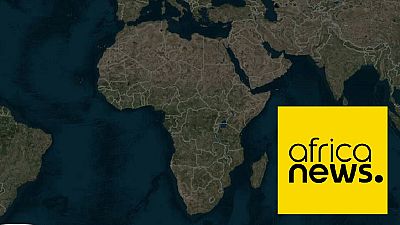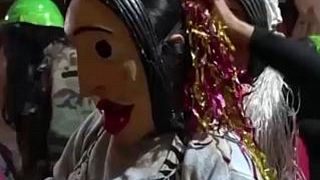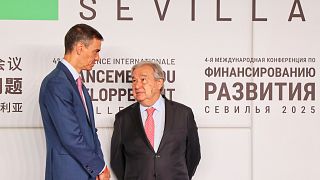Africa
This is the second of a three-part series reviewing the top African news stories for the year 2017.
It forms part of our review of the year on a country by country basis – touching on the major news stories beside sports, business, culture, tech etc.
The first part reviewed news from Algeria through to Ethiopia. Whiles this part will focus on Gabon through to Mozambique. You can find more review articles on our dedicated 2017 Review page.
GABON – Political talks, new parliament, Ping’s political acts
Following disputed presidential polls in 2016, the country was plunged into a political crisis which extended into this year. The reason for which government launched talks with opposition parties.
The main opposition figure, Jean Ping who continues to claim victory in the polls refused to be part of the process but still continues his political advocacy as the duly elected president of the country. This, despite a court ruling that irregularities in the poll could not affect Bongo’s victory.
In the heat of the political crisis, the national assembly of the country was burnt down by protesters. The country secured Chinese assistance to rebuild it even though it was not free as was the case of Congo – Brazzaville.
Find more news on Gabon
THE GAMBIA – Jammeh flies out, Barrow steps in
Their political tension transited from late 2016 into 2017 as Jammeh continued to hold onto power after unilaterally annulling results from the December 2016 polls. The regional bloc, ECOWAS, had moved to mediate but without concrete results.
His tenure was due to end on January 20 this year and president-elect Adama Barrow had been flown to Senegal for safety reasons. ECOWAS had also gotten U.N. Security Council backing to oust Jammeh if he failed to leave.
Barrow took office in Senegal at the Gambian Embassy. Guinea and Mauritanian leaders managed to talk Jammeh out. He is currently in Equatorial Guinea on exile as the country he led for 22 years grapples with the post Jammeh era.
In local elections held in April, Jammeh’s party suffered massive losses as the coalition members swept seats. A female Speaker of Parliament was elected. A female vice-president picked and recently the first independent TV station was opened.
Photo: President Barrow sleeps during summit in Saudi?
Find more news on The Gambia
GHANA – New president, elephant govt, gas explosion
In Ghana, a new president was sworn in January 7, after John Mahama lost December 2016 polls to Nana Addo Dankwa Akufo-Addo. It cemented Ghana’s place as a stable democracy across the subregion and the continent at large.
It was not before long that the government was accused of putting together an elephant sized team with 110 ministers and deputies. Incidentally the emblem of the ruling New Patriotic Party (NPP) is an elephant – government defended the move despite opposition protestations.
There was bad news later in the year as Ghana witnessed a gas explosion accident in the capital Accra. Seven people died whiles over 130 others sustained injuries. The incident has led to calls for reforms in the area of LPG sale and location of gas tanks.
Ghana’s first female chief Justice Georgina Theodora Wood retired after a decade in charge and was replaced by another woman in the person of Justice Sophia Akufo. Ghana also launched free High School program this year.
Find more news on Ghana
GUINEA – A.U. president, protests, mudslide
Guinea’s year in diplomacy kicked off on a high after its president Alpha Conde was elected African Union president. Conde took over from Chad’s Idris Deby Itno.
But the country continued to suffer unrest back home as different categories of people protested over government policies and actions. Students, teachers, media persons, mine workers all took to the streets during this year.
The issue of local elections was also prominent as opposition supporters hit the streets to pile pressure on the government. The vote scheduled for 2005 reports indicate could be held in 2018. There was a mudslide in the country even though it did not match up to that of Sierra Leone which claimed hundreds of lives.
It was also in the year under review that Guinea’s most wanted man, Toumba Diakite was extradited from Senegal. He has been accused of voluntary wounding, complicity in murder, rape and torture among others in a 2009 Conakry incident.
Find more news on Guinea
Guinea Bissau – Political crisis rumbles on
Guinea Bissau’s political crisis continued unabated even as Guinea moved in to mediate between the major stakeholders.
Meanwhile the regional political bloc, ECOWAS, threatened to slap Bissau with sanctions if the impasse was not resolve amicably.
Then in mid-year, ECOWAS also began a withdrawal of its troops in the country. The force which has been in the country since 2012 will be gradually downsized the bloc said.
Employees of the state broadcaster also kicked against what they said was rising government censorship in their work. According to an aggrieved worker, since the creation of TGB in 1989, “there has never been so much censorship as now.”
[Exclusive] Guinea-Bissau prime minister speaks to Africanews
Find more news on Guinea Bissau
IVORY COAST – Mutinies, A.U. – E.U. summit, Gbagbo news
Ivory Coast since the return to democracy in 2010 has remained a stable country with a booming economy under the Alassane Ouattara – led government. But the stability was tested through much of this year by a series of mutinies.
Soldiers blocked roads leading to and from major towns across the country leading to the firing of security chiefs. They were demanding payments promised by the government but yet to be honoured years on.
In the end, a deal was reached between the two parties as huge sums of monies were transferred to them before calm was restored.
Ivory Coast also hosted leaders from across the continent and from Europe for the A.U. – E.U. summit which was supposed to be on youth empowerment but was overshadowed by issues of migration.
The trial of its former president Laurent Gbagbo also continued in the Hague as his wife Simone also challenged charges back home. In between all of that, their son was also charged by the state for spreading fake news.
Find more news on Ivory Coast
KENYA – Chaotic and historic presidential elections as Uhuru holds on
Kenya’s general elections in August will be remembered not only for the deadly chaos that characterized it but also for the historic annulment of the presidential results by the Justice David Maraga led court.
The elections body, IEBC, went ahead to declared Uhuru Kenyatta winner of the vote despite protests from the opposition NASA coalition led by Raila Odinga – a former Prime Minister. NASA went to court and secured the historic annulment that the process was tainted.
Then in a shock move, NASA boycotted the second round of the vote with the reason that reforms ordered by the court had yet to be carried out. IEBC postponed the first rerun date to engage NASA but they would not budge.
The vote went ahead with very chaotic scenes in opposition strongholds. Low turnout recorded by Uhuru Kenyatta won by 98%+. He has already began his second and final term which runs till 2022.
Find more news on Kenya
LESOTHO – former PM stages comeback, army chief shot dead
In the southern African country of Lesotho, a former premier won elections to return to his post after defeating the incumbent.
Thomas Thabane’s party won 48 seats out of 120, ahead of Prime Minister Pakalitha Mosisili, who won only 30 seats, the Independent Electoral Commission (IEC) said. Thabane, who made a comeback after a two-year exile, has since formed a coalition government.
The country was put on edge when reports emerged that the army chief had been shot dead in the capital Maseru. It led to an intervention by the regional political bloc, SADC. The body met to appraise the security situation in the country.
Find more news on Lesotho
LIBERIA – Key vote to replace Sirleaf, court case and vote rerun
Unlike in other parts of the continents, where leaders hold on to power, the case of Liberia was different. Africa’s first democratically elected female president was ready to leave office but the race to succeed her was the biggest test for the country.
Over a dozen people entered the race to succeed her. The main contenders were her deputy – Joseph Boakai and a former world footballer of the year, George Weah. At the end of the vote, none of the two earned the 50%+ needed for an outright win.
The elections body, NEC Liberia, arranged a run-off vote which was halted by a court challenge of the first round. The Supreme Court dismissed the case filed by third-place Charles Brumskine paving the way for a December 26 run-off.
Find more news on Liberia
LIBYA – Security crisis, slave market report, Gadaffi Jnr released
The north African country continues to experience considerable chaos since the ouster of its long serving leader, Muammar Gaddafi in 2011. Parts of the country continues to be held by rival forces. Paris hosted a meeting between the two main governments.
The two main groups being the Government of National Accord which has international backing and the eastern government led by General Khalifa Haftar. Of the big political events was the release from jail of Gaddafi’s son Saif Al-Islam from jail.
Months on, he is said to be harbouring presidential ambition as international partners push for elections to be held in the country. This is despite Saif being the subject of international summons by the ICC in the Hague.
The issue of migrant abuse in the country traversed the entire year but became more prominent in October when footage of slave markets selling blacks for $400 was released by CNN. The U.N. backed government has been tasked to investigate the incident.
The Libyan ‘successor’ turned ex-prisoner: Saif al-Islam Gaddafi
Find more news on Libya
MADAGASCAR – WHO, prison break
The outbreak of a deadly pneumonic plague in Madagascar thrust the island nation into the news in September 2017. The World Health Organization (WHO) quickly moved in to support health authorities to contain the situation.
A number of deaths were reported as the government continued to take steps to arrest the situation. The disease forced the closure of universities in the country. A lorry accident in August also claimed at least 34 lives.
More recently, there was the case of a jail escape after a mob forced their way into the jail with the aim of lynching an inmate. A number of the escapees were rearrested and a hunt is on for the others.
Find more news on Madagascar
MALAWI – Ex leader probed, vampire attacks, fall army worm invasion
The Malawian police in July this year reported having received an arrest warrant from the court in respect of its former president, Joyce Banda. The case in question is of fund misappropriation during her tenure as president.
Banda, at the time out of the jurisdiction fired back saying that she had nothing to hide and that she will avail herself to the authorities soon as she is back home.
Reports of vampires sucking blood of residents also led to attacks that killed six people. Mass arrests have subsequently been made. The fall army worm also caused considerable damage to food crops in the country. A state of disaster has since been declared over the invasion.
Find more news on Malawi
MALI – terrorist attacks, G5 Sahel involvement, polls pushed
Mali was hit by a series of terrorist attacks during the year. U.N. peacekeepers and Malian security forces all recorded casualties from the attacks. Malian president Ibrahim Boubacar Keita was also key in G5 Sahel talks.
There was at a point the signing of a ceasefire deal between the government and rebels. But that did not stop the attacks by other groups. Al-Qaeda in the Islamic Maghreb also released two high profile hostages.
At the ICC, a former rebel leader Amad Al-Faki Al-Mahdi was also asked to pay compensation for destroying UNESCO heritage sites in northern town of Timbuktu.
Via a presidential decree, a planned referendum was indefinitely postponed after it was opposed by regular street protests. by a presidential decree. It’s immediate past president Amadou Toumani Toure returned home after five years. He fled to Burkina Faso and later to Senegal where he lived with his family.
Find more news on Mali
MAURITANIA – G5 Sahel Force, new flag, rights issues
As a member of the Sahel region, Mauritania also played a big role in the G5 talks and in contributing troops. President Ould Abdel Aziz was instrumental in getting Yahya Jammeh to quit power early this year along with Guinea’s Alpha Conde.
Back home, human rights issues were on the front burner as media personalities and activists were arrested and hurled before the courts for various offences. The particular case of a blogger can up strongly.
The country also held a referendum which in the end ushered in a new flag for the country and abolished the senate which the president had described as “useless and too costly”. The referendum also broadened powers of the president.
Find more news on Mauritania
MAURITIUS – PM’s son takes over from dad,
Mauritius got a new Prime Minister in January 2017 after 86-year-old Anerood Jugnauth resigned and handed over power to his son.
55-year-old Pravind Jugnauth, who at the time was leader of the main political party Militant Socialist Movement (MSM) formed his ministerial cabinet after receiving his appointment letter from President Ameenah Gurib-Fakim.
The opposition will go on to stage a protest against the appointment calling it a black day for the island nation. Clad in black and holding placards with the inscription “No father-son deal”, “Democracy in Mourning” and “No to Monarchy”, the protesters called for a general election and an end to the transfer of power along family lines.
Find more news on Mauritius
MOROCCO – Return to A.U., bid to join ECOWAS, migrant assistance
After applying to rejoin the African Union in 2016, Morocco’s membership was put to vote in January this year and they were readmitted by majority of votes in Addis Ababa. The king of Morocco also addressed the continental bloc.
Next, Morocco applied to formally join the West African political bloc, ECOWAS. At a summit in Liberia, it was brought up and pushed to a later meeting. The king did not attend the Liberia meeting reportedly because of the presence of Israeli PM Benjamin Netanyahu.
The membership vote has yet to be firmed up. Morocco also played a role in migration in Libya after the slave market footage, agreeing to fly some of the migrants to third party countries or to their places of origin.
Morocco belonged to the group of nations that advocated for mediation to solve the Gulf crisis between Saudi and its allies on one side and Qatar on the other hand. They sent relief items to Qatar in the heat of the crisis.
Find more news on Morocco
MOZAMBIQUE – Govt, rebels peace agreement, govt austerity moves
The rebel opposition RENAMO party had earlier this year announced an indefinite ceasefire amid talks with government. Then in what seems like a crystallization of the talks, a peace deal was announced by the presidency in August this year. It is believed that it will be signed by close of year.
There was an outcry about government spending especially on plush vehicles for members of the legislature. The expenses were justified by the finance minister.
Months down the line, the government announced austerity measures to cut down on spending as a means of saving $120m in 2018. The two main areas being that government was going to cut down on accommodation and transportation of some top government officials.














01:47
Chinese city of Xuchang is world's biggest producer of wigs
01:15
U.S. considers adding more African countries to travel ban
01:00
Renewed calls to end plastic pollution on World Environment Day
00:52
Bill Gates says most of his $200 billion fortune will go to Africa over next 20 years
01:18
Gabon to halt manganese exports by 2029
Go to video
Africa’s First Multilingual Small Language Model Gets Even Smaller - Thanks to Top African Innovator